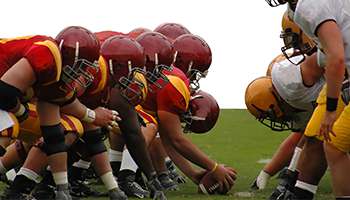What to Expect When Looking to Start a New Warehouse Job
The warehouse industry is always growing and is always searching for new workers. It isn’t because of high turnover or poor pay, either. Warehouse jobs are high-paying, labor-intensive jobs that require little experience to get started. Warehouse employees have plenty of room to grow, earn more, and get promoted.
Interested in a warehouse job? Are you new to the industry? If you answered yes to these questions, you’ll want to pay attention.

Typical Warehouse Requirements
Most warehouse jobs have a standard list of job requirements. These requirements vary, but the general gist of them are as follows:
- High school education or GED. A basic high-school education is important for reading, writing, and some math. In some special cases, high school or GED may not be required.
- Ability to understand all written and verbal communication. In warehousing, communication is important. This is the case not only for success on the job but for the safety of all workers on site.
- Ability to meet certain physical demands of the job. This may include lifting a certain weight, standing and walking, and operating machinery.
- Ability to follow all posted safety rules. Warehouse employees who follow safety rules keep themselves and others safe.
Typical Warehouse Positions
Warehouses have many position types that are all required in order to function properly. Here is a non-exhaustive list of the most common positions:
- Forklift Operator
- High Reach Operator
- Shipping/Receiving Clerk
- General Laborer
- Picker/Packer
- Shipment/Delivery Driver
- Manager
Typical Conditions
Conditions inside of warehouses vary depending on the location and company.
Many warehouses need to have cooler or warmer environments for their products. They might require the warehouse to be much colder than usual. Many warehouses use air conditioners or other units to cool.
Warehouses that don’t require product temperature control have limited ways of cooling and heating the warehouse in extreme weather conditions. In a hot summer, industrial fans and air conditioning may be provided to keep employees cool. In a cold winter, heating units, if available, will be turned on to keep the inside of the warehouse temperate.
Many warehouses have large industrial shelving units. These shelving units help organize products. Forklift operators use forklifts to reach products on higher shelves. Some warehouses don’t use forklifts. In this case, a picker/packer may use a pallet jack or a cart to haul the product.
Employees who drive machinery indoors must follow all safety rules while operating their machine. This includes watching for other machines, watching for other workers on foot, and being spatially aware of their surroundings.
If you’re interested in a warehouse job, contact us today to set up an interview!






